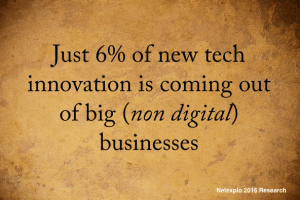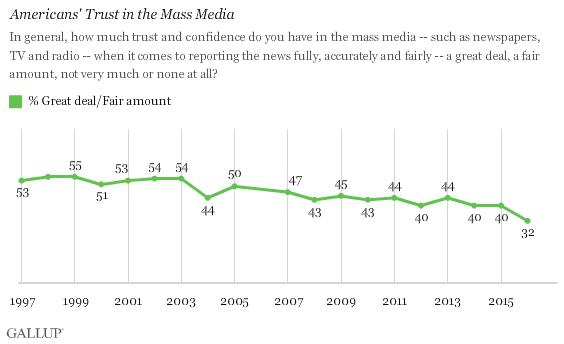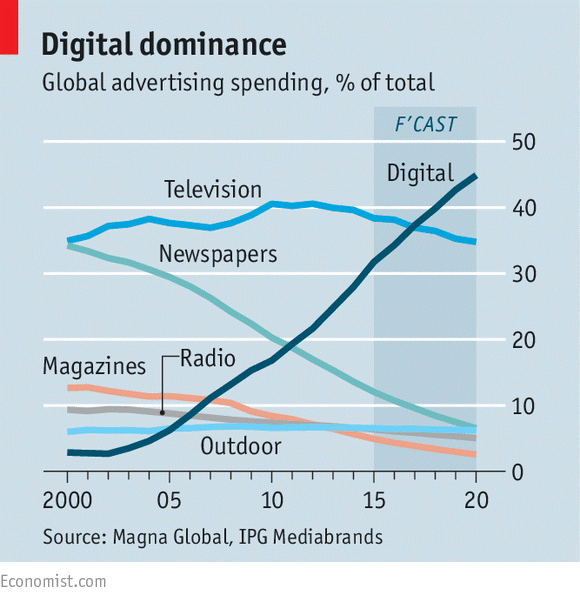I love it when I hear certain executives say “we’re beginning to get it.” The good news is that there is a lot of movement in big business and many brands are beginning to “transform.” However, as was highlighted in the newly released Altimeter report, 2016 State of Digital Transformation, if everyone is getting focused on the customer experience and being “customer centric,” the priority axes of work in digital transformation for the leaders questioned were (in order):
- innovation (for 81% of respondents)
- modernized IT infrastructure (80%)
- improving operational agility (79%)
Not much in it for the top three answers — all between 79% and 81%. But, to link these three items directly to the customer experience is at best a leap of faith.
Digital in support innovation

Obviously, innovation is key. It’s the lifeblood of business. Without a great and differentiated product or service, who are you after all? As the Netexplo Observatory points out regularly, big businesses (excluding the GAFAs of the world) are producing a measly 6% of new tech innovation. But for the next two items cited in the research above, it smacks more of internal efficiencies and productivity gains. Obviously, that is not necessarily bad. It does go to show that having the right technology is at the top of the strategic imperatives. However, where are the improvements in customer experience? As Brian Solis notes in the report, companies report that “digital transformation is now about people first and technology second.” Of course, that too is hard to reconcile with three axes of work above.
People over process

Surely, we need to have the right product and having the appropriate technological infrastructure is indeed strategic. However, without the right mindset (i.e. engaged talent), the tools and products alone will struggle to bring home the bacon. One of my strong convictions is that businesses need to be hyper concerned with the way they recruit and manage their employees. If senior management is still hesitant to get onto social media, for example, how can they even recognize proper digital talent? Moreover, to what extent are managers who aren’t using social — and who are thus hidden by a veil — exposing their personality to potential recruits? This is part of what I call: the need to develop the managerial Digital IQ, a topic I hold dearly.
Generating trust
Underneath the digital transformation that can seem like a mountain to climb because of the complexity and totality of the change required, lies the need for a clear purpose and strategy, engaged employees and a congruency in the ways relationships are developed and nurtured with all stakeholders.
Underneath digital transformation lies the need for a clear purpose and strategy, engaged employees and congruency in relationships. Share on X
In large part thanks to the increasing exposure in the ways that businesses are run, trust in companies — with their institutional messages and trumped up marketing — continues to spiral downward. This mistrust is entirely crystallized through the disintegrating trust in mass media. Share on X
Do you trust mass media?
I have been particularly struck about two concurrent and completely related trends. First, people more than ever don’t trust mass media (i.e. manicured, plastic and overtly biased messaging). (Courtesy of Gallup) In fact, the level of trust is now at its lowest ever. If this is a US poll, I believe the trend is similar in most developed countries… even developing ones? Apparently, the political campaigns in the US have contributed to the steep decline in trust in the above poll. But is it any better elsewhere?
 Secondly, digital is set to overtake television in terms of global advertising spend (courtesy of The Economist). The lines are just now crossing… And newspapers are clearly the biggest losers. But, the point behind this which is quickly lost is that the style of relationship-building and communications using the digital channels and devices is radically different. And this requires a significant change in mindset.
Secondly, digital is set to overtake television in terms of global advertising spend (courtesy of The Economist). The lines are just now crossing… And newspapers are clearly the biggest losers. But, the point behind this which is quickly lost is that the style of relationship-building and communications using the digital channels and devices is radically different. And this requires a significant change in mindset.

The link between these two trends is inseparable and indelible.
Moving from comms to relationship building
But just doing what we've always done on mass media and transferring it into digital channels won't cut it. Share on X Wouldn’t you agree? The key message for management is to spend decidedly more time on the soft issues around defining and refining one’s values, behaviors and actions; about the attitude of one’s employees; about the congruency of one’s message to shareholders, in commercial messages to customers and HR memos within the company. A lot of the issues stem from being too short-term focused. But, the fundamental issue is a question of mindset — starting at the top. Leaders should find out, first, to what extent their staff trust them or each other?











